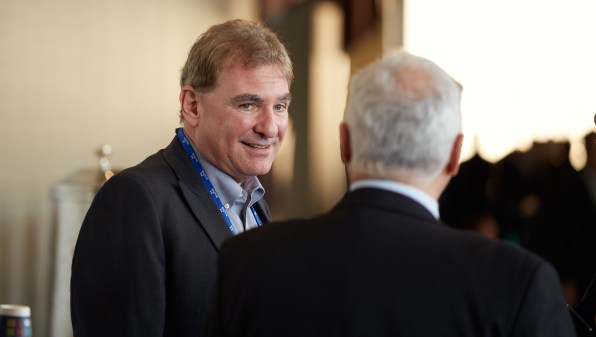Nebraska’s different approach to workforce consolidation
One of the biggest trends in state technology these days is consolidating a state’s information technology workforce under one authority, but Nebraska is taking a vastly different approach that has produced positive results.
In an interview with StateScoop, Brenda Decker, the state’s chief information officer since 2005, said Nebraska is keeping the IT leadership of each agency in place, but with one caveat.
“When an agency loses its top IT person, we approach the agency director and propose a different approach. We offer the alternative for the agency to contract with the state CIO’s office to put a leader in place from our office into their organization rather than going out and hiring someone.” Decker said. “That puts someone inside the agency that can be part of its direction, but also has knowledge of the CIO’s office, how the enterprise operates and the services we can provide.”
That person works full time at the agency and reports to its director, but still remains an employee of the CIO’s office. They continue to meet with the central organization once a month to stay on the same page. The person’s salary is paid 90 percent by the agency with the final 10 percent coming from the CIO office.
The process was first tested about 12 years ago when the Department of Social Services (now the Department of Health and Human Services) lost its top IT person and needed someone with a deep technical knowledge.
Over the past several years, the state has used this process for a number of large state agencies, including the Department of Labor, the Nebraska Public Employees Retirement Systems, Game and Parks Commission, the Department of Corrections and the Department of Agriculture, among others.
“Over my tenure as CIO, we have explored various options to consolidate the workforce under one organization to gain economies. As we looked at the ways to consolidate, we also looked for efficiencies at the agency level. This option allows the agencies to keep the technical staff in their organization.” Decker said. “I know it’s different, but it has worked well for us.”
Decker said Nebraska is working on a number of key projects:
- The state has installed a statewide public safety radio system and is currently performing a validation and verification process.
- Nebraska, like many other states, is in the early stages of working on the Affordable Care Act requirements. Decker said the state elected to participate in the federal health insurance exchange and is working to incorporate the federal model and the requirements that go with it.
- Decker said the state is also in the process of consolidating its enterprise content management system. “A number of agencies have been dipping their toe into the system and, once they get one or two successful projects under their belt, they are ready to transition over.”
- The state is also starting to plan for the retirement wave that has the potential to affect every state agency as a large amount of employees are nearing retirement age. Add that to the economy turning and more people are moving to private sector jobs, creating a hole in the state’s information technology workforce.
- Decker said Nebraska is also looking to expand its shared services platforms beyond the successful partnership with the University of Nebraska system. The state is working to share services with other public sector entities like the city of Lincoln or Douglas County, where Omaha is located. “We can continue to collaborate on services and processes that will change how we work,” Decker said.





